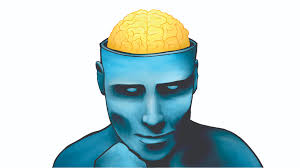Long COVID is a complex and ongoing challenge for many individuals. Symptoms often extend far beyond the initial illness. One of the most difficult issues to manage is “brain fog,” which can disrupt daily life in profound ways. Here’s some information on its mental and physical impacts, along with practical steps to support recovery and well-being.
Symptoms of Long Covid
For many individuals, the lingering effects of long covid present a persistent challenge, often accompanied by troubling symptoms like cognitive impairment. Brain fog, fatigue, and physical weakness are frequently reported, leaving patients feeling drained even by simple tasks such as reading an email or remembering appointments. Concentration problems are another common issue, making it hard to handle basic work responsibilities or stay focused during conversations. These cognitive struggles can deeply impact daily life, turning routine tasks into daunting obstacles.
Mental Health Challenges
Depression and anxiety significantly intersect with long COVID cognitive impairment. Individuals often find themselves battling feelings of hopelessness or prolonged worry, adding to the mental strain caused by long-term illness symptoms. The pressures of returning to a routine may amplify these emotional states, emphasizing the need for tailored mental health support.
Sleep disturbances, such as sleep apnea or insomnia, worsen these emotional and cognitive symptoms. Poor sleep quality disrupts healing and exacerbates neurological issues, creating a cycle of fatigue and mood instability. Addressing sleep problems helps break this cycle and supports overall mental and physical recovery.
Need for Medical Attention
If you suspect post-COVID cognitive issues, consulting a healthcare provider is a helpful first step. Early evaluation provides pivotal insights, guiding the pathway for effective treatment. Such care ranges from neurological assessments to simple memory tests that help determine the scale and source of impairments.
Alongside medical tests, healthcare teams are integrating physical and mental health approaches to recovery. Cognitive therapy, sleep aids, and exercise regimens tailored for low energy levels can help. These strategies aim to guide long-haul COVID patients toward sustainable improvement without risking their overall health.
Steps Toward Healing
Managing these symptoms starts with small, intentional lifestyle changes. Eating a nutrient-dense diet rich in whole foods like fruits, vegetables, lean proteins, and healthy fats can support overall brain function, boost energy levels, and stabilize mood. Incorporating moderate physical activity not only improves physical health but may also enhance mental clarity and reduce feelings of fatigue. Practicing lightweight mindfulness activities, such as focusing on your breath for a few minutes daily or engaging in brief guided meditation sessions, can help ease anxiety over time and improve concentration and focus. These small but meaningful steps help contribute to a greater sense of well-being and balance in your daily life.
Seek Expert Guidance
The cognitive effects of Long COVID demand attention and action. If symptoms such as brain fog, anxiety, or sleep disturbances are interfering with your daily life, speak with a medical professional or specialist. Early intervention is a decisive step toward managing your recovery. By collaborating with a healthcare provider, you can uncover tailored solutions to improve overall well-being and regain the clarity to thrive once more.
- Choosing the Right Plastic Surgeon for Your Cosmetic Procedure
- Understanding Different Types of Laser Treatments for Skin Rejuvenation
- Why a Family Dentist is Key for Maintaining Oral Health
- The Benefits of Regular Visits to a Wellness Spa
- Exploring the Emotional and Psychological Triggers of Eating Disorders


Leave a Reply